class: center, middle, inverse, title-slide # Dirty Wars ## Digital Repression: What Is To Be Done? ### Jack McDonald ### 2020-03-25 --- class: inverse # Lecture Outline .pull-left[ - Technologies of Repression - The State/Platform/Copyright Nexus of Repression - Technology Will Save Us… Right? - Exporting Repression - _Digital Repression: What Is To Be Done?_ ] .pull-right[ Lecture Outline - Xinjiang - What Can Be Done? - Norms and Technology - Globalisation and Interdependence - Population Control in Context - Conclusions - Course Round Up ] ??? If you make it this far in the year, you will probably have guessed that I am something of a pessimist, or at least that I’m suspicious of utopian narratives. But that is not the same as stating that nothing will change, or can change. In this lecture we will be discussing practical and theoretical approaches to digital repression as a policy problem. We will be revisiting the discussions over this series to debate the importance of the digital in “digital repression” and the best theoretical framing of some of the problems that we have encountered so far. This lecture is going to put the original issue, internment camps in Xinjiang, back on centre stage. We’ll be looking at it as a problem from a variety of different angles, and in the context of China’s competition with the United States. You’ll be asked to bring to the lecture the insights you’ve gained from your studies so far this year, and we’ll be discussing what are the most important theories that explain the existence of the camps, and how/why China might cease its repression in Xinjiang. Discussion Questions: Does any entity but the Communist Party of China have the power to shut down the internment camps in Xinjiang? Is “technology ethics” a way of avoiding the politics of technology? Readings: Tufekci, Zeynep. Twitter and Tear Gas: The Power and Fragility of Networked Protest. Yale University Press, (2017). Chapter 9 Farrell, Henry, and Abraham L. Newman. “Weaponized Interdependence: How Global Economic Networks Shape State Coercion.” International Security 44, no. 1 (2019): 42–79. https://doi.org/10.1162/isec_a_00351 . --- class: inverse # Discussion Questions Does any entity but the Communist Party of China have the power to shut down the internment camps in Xinjiang? Is “technology ethics” a way of avoiding the politics of technology? ??? 1. I posed this question because it's a good way of re-framing debates about Xinjiang, from "must-ought" to "possible-power" 2. We know that issues like Xinjiang cannot be resolved by force, but how can international actors persuade or coerce the CCP? 3. In my view, there is an inherent tension between the self-image of democratic actors/agents, and the necessary kinds of action that might ameliorate or end the internment camps in Xinjiang 4. Also, there are fundamental limits to action - when did the Communist gulags end? 5. The second question is, in my view, about the need for scepticism when engaging with normative debates about technology 7. David Edgerton - technology in use vs technology in theory 8. We see ethical debates, but are they anything more than a mask for inaction by companies? 9. Even if there were an ethics of technology, how would that affect state use of technology in practice if they did not share a similar world view or values 10. In this sense, tech ethics is a good way of avoiding a deeper schism in values in world politics --- class: inverse # Part 1: Xinjiang: What Can Be Done? ??? 1. Xinjiang is a good example of a persistent problem in international politics: significant human rights violations where international intervention is impossible 2. Xinjiang is also a harbinger of international politics after American hegemony 3. It appears unlikely that American hegemony will be sustainable in the face of Chinese ascent in the 21st century 4. Leads to question: return to a bi-polar world, or a multi polar future? 5. Given strength of Chinese economy and state, also demonstrates issues with many levers of persuasion/coercion - can't embargo China --- # Power and International Politics > One of the main purposes of the Melian Dialogue is to make clear that both sides have a point. Its dramatic power is increased by the presentation of two opposite though complementary political ideals and attitudes. The reader and "spectator" may identify himself with either side and ask himself what he would say or do in the same situation. Or, better still, he may recognize that the position taken by both sides is equally natural and justified and that both have to be seen together as expressing different aspects of the same issue. But, as in Attic tragedy and in Plato's _Apology_ or _Gorgias_, whatever words are spoken by either party appear tragically futile when read with the knowledge of the inexorable and bitter end. Felix Martin Wassermann, _The Melian Dialogue_ ??? 1. Does "might make right"? No, but how can "right" alter the decisions of those with might? 2. Key line of Melian Dialogue is that weak shall suffer as they must, but also Athenians "we should gain by not destroying you" - violence is costly 3. Xinjiang demonstrates a paradox - the more important/saliant an issue becomes in international politics, the more states have to lose in terms of honour/face if they choose to change course 4. Xinjiang also demonstrates limits of right in international politics - global governance posits no limit to intervention and importance of rights/law/morality, whereas realism traditionally accepts limits of power and practical ability to change the world 5. So, is international pressure and shame over Xinjiang counter-productive? If it is, why do it? Do agents and orgs do it for their own sense of self rather than to aid? Leads to a tragic vision of normative pressure --- # Normative Pressure .pull-left[ 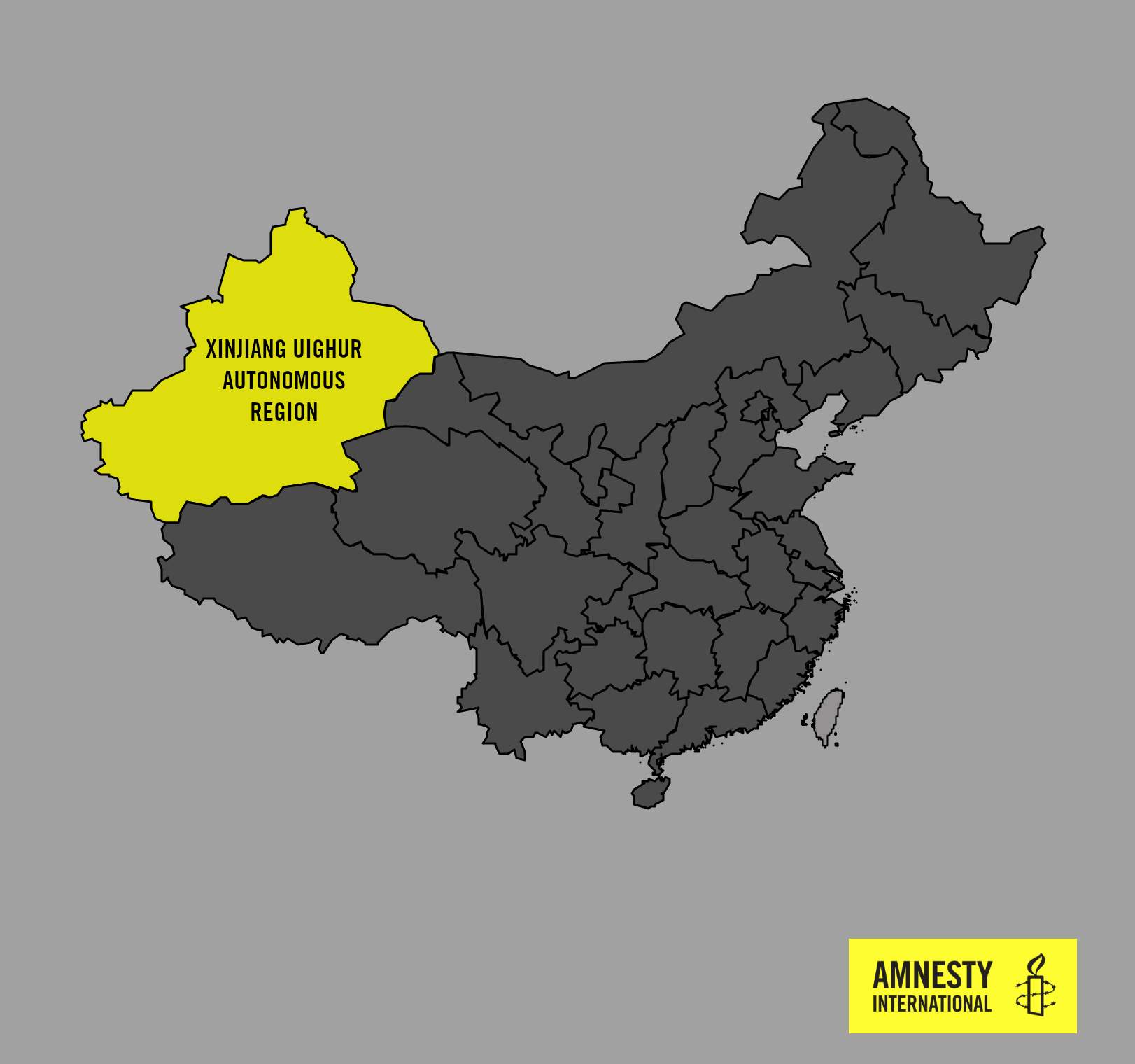 ] .pull-right[ 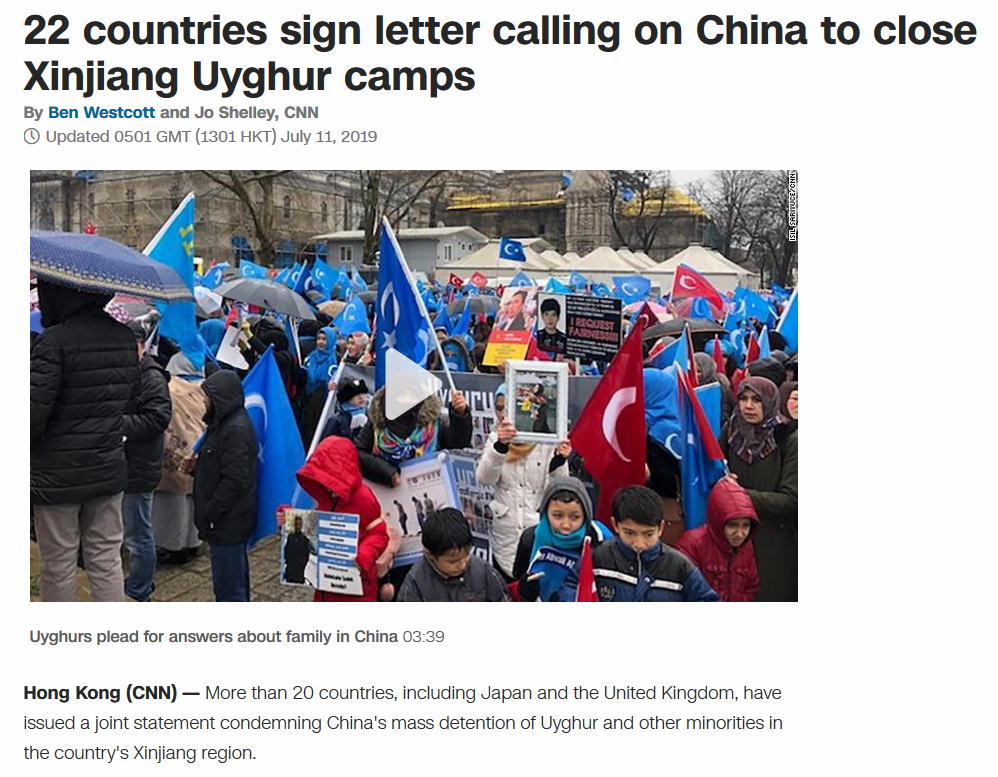 ] ??? 1. What kinds of actors are most amenable to normative pressure in IR? 2. Norms work in hegemonic structures where exile from structure has significant penalties, but does that continue to apply here? 3. Norms also work where normative violations can create conditions for intervention, but here that is not the case - the system structured to prevent intervention in this case 4. This leads to a pretty bleak view, which can get bleaker once we look beyond Xinjiang - is China opposed to "rules based order"? 5. It is important to caveat this - RBO is currently how we describe a period in which actors on all sides opposed "the rules" even if it ever existed --- # Commercial Pressure .pull-left[ .medium[ > the Secretary of State should consider the applicability of existing authorities, including the Global Magnitsky Act.. to impose targeted sanctions on members of the Government of the People’s Republic of China, the Chinese Communist Party, and state security apparatus, including Xinjiang Party Secretary Chen Quanguo and other officials credibly alleged to be responsible for human rights abuses in Xinjiang and elsewhere; H.R.649 - Uyghur Human Rights Policy Act of 2019 ] ] .pull-right[ .medium[ > But few in Berlin expect German companies to divest. “You can imagine the trouble VW would get into in China if they closed their factory because of the deteriorating human rights situation in the region,” said Max Zenglein of the Mercator Institute for China Studies. Guy Chazan, _Deutschland AG sticks with Xinjiang despite Uighurs mistreatment_ ] ] ??? 1. A second tool is commercial pressure - sanctions etc 2. Here the US has some levers to pull - but is Xinjiang important enough to pull them? (also, given that we're headed for a global recession/depression, what's the consequences?) 3. Idea was that by integrating China into globalised economy its government would essentially be domiciled with liberal values after development 4. Consequence is that world is now fully integrated with china, and therefore sanctions hurt both ways 5. For this reason, appears not much can be done, but some argue there is - regulating technology --- class: inverse # Part 2: Norms and Technology ??? 1. One key area of pushback against digital repression comes from within the tech industry (engineers) and commentators upon the industry 2. Position is that some kinds of tech are immoral, or unethical, and therefor shouldn't be developed 3. This relates to the influence of norms in two ways - one as a code of expected conduct for engineers, second as the kind of norms embedded in certain technologies 4. Should connect this to some wider debates - one over the development of weapon systems (should science aid this? some scientists say no) 5. Second is over the power that engineers can have in a society by making systems work for governments/corporations - do they bear responsibility for use of technology? --- # Ethics and Technology .left-column[ Where is the wrong? - Basic research - Product development - Sales Can basic research be separated from predictable use cases? ] .right-column[ 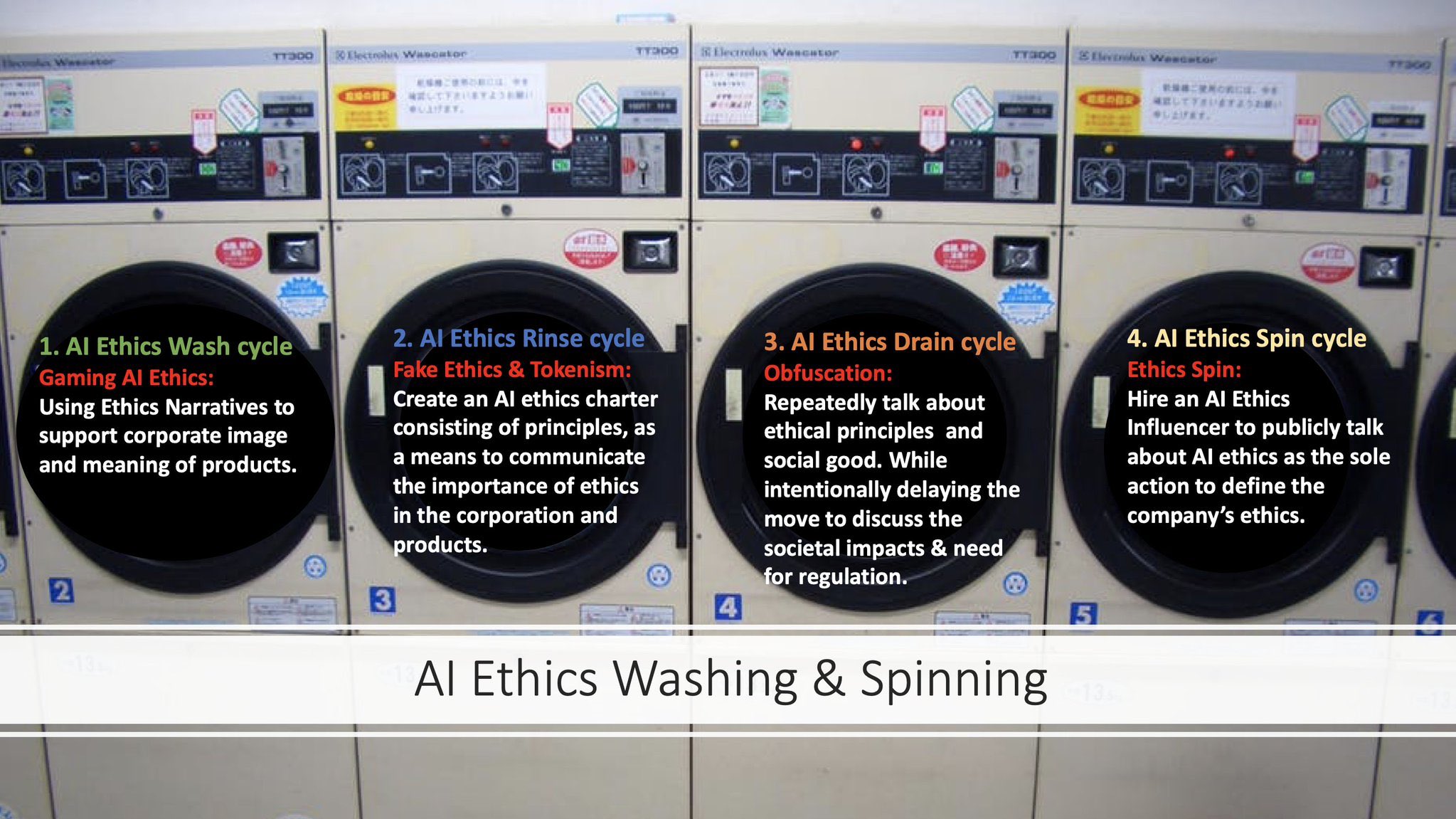 ] ??? 1. Big question: should tech companies be engaged with military work? 2. Answer in the west - some engineers/employees really unhappy with this 3. Second issue, should some tech (facial recog) not be developed because of social consequences? 4. Should companies not use "AI" in certain fields because of social consequences 5. Has led to explosion of research over AI governance and tech ethics 6. Part of longer running issues in computer ethics, and practical ethics more widely --- # Individuals and Corporations > Hence the question addressed to those who participated and obeyed orders should never be, "Why did you obey?" but "Why did you support?" This change of words is no semantic irrelevancy for those who know the strange and powerful influence mere "words" have over the minds of men who, first of all, are speaking animals. Much would be gained if we could eliminate this pernicious word "obedience" from our vocabulary of moral and political thought. Hannah Arendt, _Personal Responsibility Under Dictatorship_ ??? 1. Key normative lever - responsibility, but are individuals and corps responsible in same way? 2. Scale problems - penalties for individuals don't scale to corporations, fiscal penalties can put people out of work 3. Strategic problem - USG penalising facebook might cede markets to foreign competitors, and internet tends towards monopolies 4. One goal - mobilising individuals within corps to change corp attitudes, but this conflicts with modern understanding of corp role (shareholder value) 5. Weird world in which tech companies use normative language to cloud fact that they are basically big monopolistic corporations, underneath all the SV lifestyle working conditions --- # Ethics in Commerce > We believe that Google should not be in the business of war. Therefore we ask that Project Maven be cancelled, and that Google draft, publicize and enforce a clear policy stating that neither Google nor its contractors will ever build warfare technology. Google Employees' Letter to Sundar Pinchai ??? 1. Companies do respond to ethical arguments, notably in key areas like corporate social responsibility 2. Also important to note role of moral arguments in development of environmental legislation 3. But question is whether these are anything more than fig leaves for damage inflicted by corporate actions 4. Secondly, corporations good at using ethics to sell products 5. I don't think we should expect corporations to stop developing these technologies for ethical reasons 6. Furthermore, without global governance, corps ceding to competitors could be long-term suicide 7. Witness Google's decision to exit China - created conditions for domestic competitors to take over market 8. Emerging markets might not care about the same things that western audiences do, but global corps subject to campaigning from all sections of world --- class: inverse # Part 3: Globalisation and Interdependence ??? 1. Xinjiang raises issues that have persisted across the post-cold war period - what is globalisation, how do ideas and values intersect with a globalised world economy? 2. Important for this course for thinking how these general rule sets we've been discussing are transmitted and re-enforced 3. There is, to put it bluntly, a political economy of human rights campaigning, that clashes with state and commercial interests in a number of sectors 4. Combination of increased visibility of HR abuses, communications tech and weaving of HR into global governance structures conflicts with power politics 5. Key counter-problem of globalisation is interdependence. HR posits that interdependence brings non-HR compliant world into alignment with HR compliant world, but what if the direction of traffic is the other way? --- # Human Rights .pull-left[ 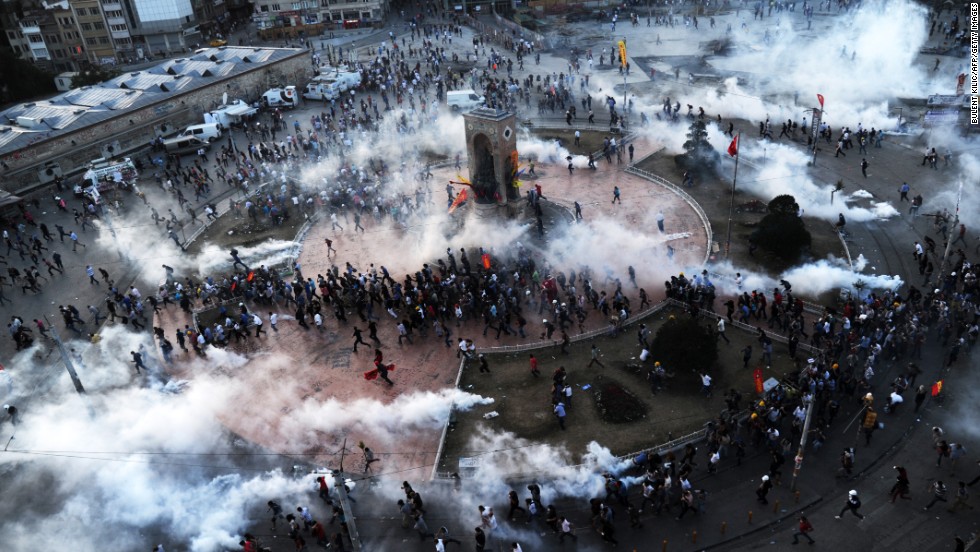 ] .pull-right[ 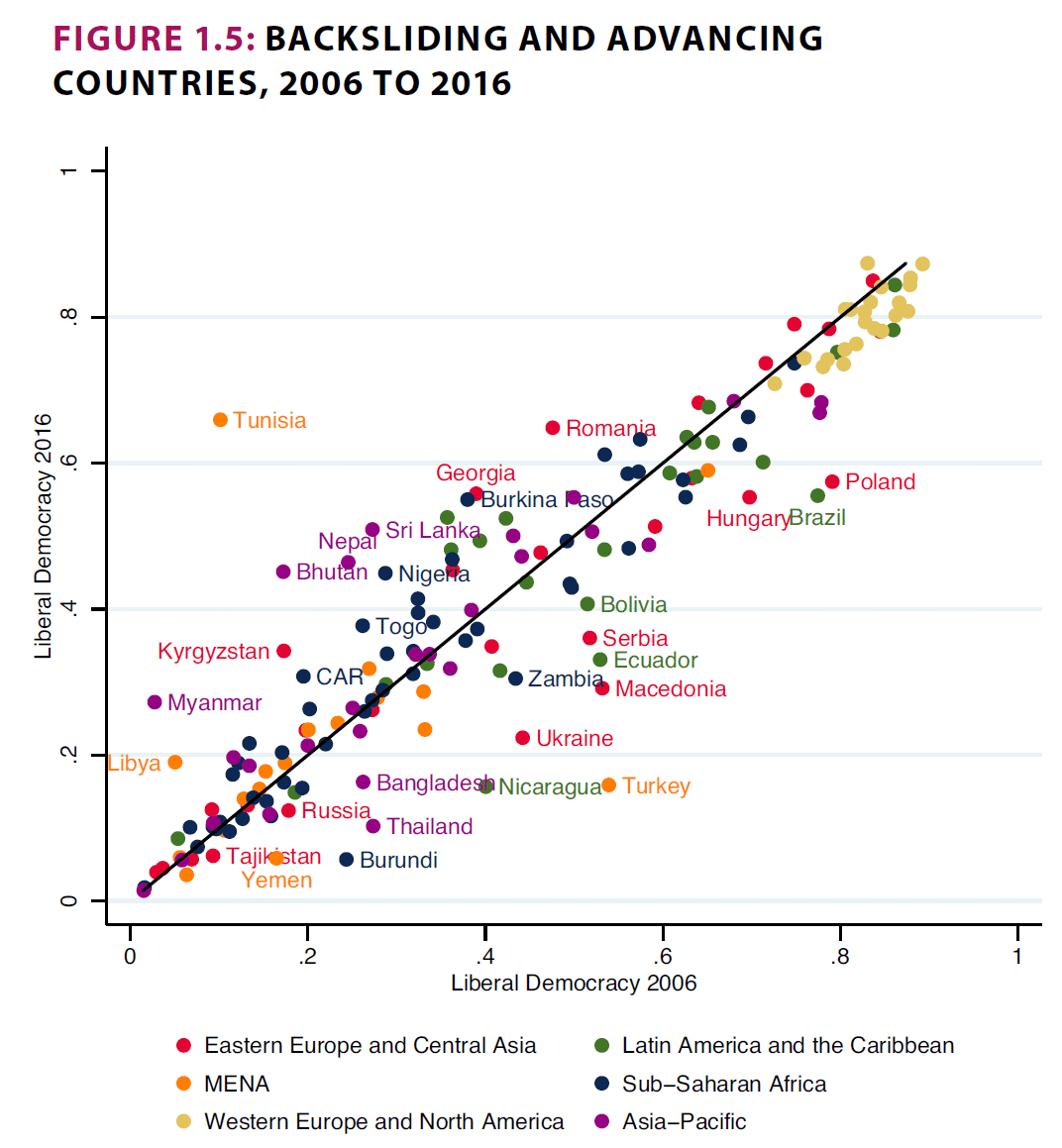 ] ??? 1. As we've seen on this course, part of problem of human rights is the tension between universal and particular, between shared set of values, and fact of differences in values across culture 2. 1990s seen as this kind of hey day of human rights - and it is still exploding in visibility 3. But, as some might point out, HR hay day in the US was 1970s/1980s - been in retreat since? 4. Human rights claims create key flash points in international politics (see issues over Tibet) 5. But does HR have a telos? Is a march towards a world of universal HR inevitable? --- # Deviant Globalisation .pull-left[  ] .pull-right[  ] ??? 1. Key pushback: Globalisation has deviant variants (Nils Gilman) - e.g. organised crime and plutocrats 2. We have a global financial elite who are steadily decoupled from the needs/wants of their populations 3. Globalisation fuels illicit markets in goods, production, and people 4. Financialisation of world economy has essentially made corruption easier, and sometimes harder to trace. Weirdly the thing that has countered this the most is financial transparency regs arising from terrorist financing legislation in the US 5. Would replacement of the US by China, or by multipolarity of values, count as "deviant globalisation"? --- # Weaponised Interdependence > The world has entered into a new stage of network politics, in which other states have begun to respond to such efforts. When interdependence is used by privileged states for strategic ends, other states are likely to start considering economic networks in strategic terms too. Targeted states—or states that fear they will be targeted—may attempt to isolate themselves from networks, look to turn network effects back on their more powerful adversaries, and even, under some circumstances, reshape networks so as to minimize their vulnerabilities or increase the vulnerabilities of others. Henry Farrell and Abraham L. Newman, _Weaponized Interdependence: How Global Economic Networks Shape State Coercion_ ??? 1. This leads to key related issue that I think will be important in future - weaponised interdependence 2. E.g. use of control of global infrastructure to exclude and punish 3. E.g. denial of access to dollar/banking clearing systems 4. Tech industry not like this right now, but consider role of major cloud services platforms (MS, AWS, etc) - exclusion from these could kill scalability of companies 5. Equally, open standards weaken state options for intervention --- class: inverse # Part 4: Population Control in Context ??? 1. This last part of the lecture has been updated slightly from what I planned 2. I've been working on population control as a way of thinking about the relationship between war and political repression 3. In Xinjiang, we see a form of population control that is testing technologies and techniques that can, and have, been employed elsewhere 4. So from this perspective, Xinjiang could be a harbinger of the future 5. Since "lockdown" has now enetered the global vernacular, we should consider this carefully --- # Sovereignty and Community .pull-left[  ] .pull-right[  ] ??? 1. Ultimately, who has the right (if anyone) to institute control measures over a population, and why? 2. In this course we've covered the clash of liberal individualism with communitarianism 3. We live in a world of sovereign states that hold the option of instituting population control measures for a variety of reasons 4. In this sense, one thing to look for is the relationship between political culture, perceived political emergency and population control 5. Also see the complete absence of fantastical liberatarianism in current Covid debates - it is a fantasy of no relevance to actual public health/polity-scale problems --- # Grand Strategy and Population Control > The rules-based international order in all its manifestations—which is critical to the UK’s national interest—is under serious threat from multiple directions. > The Government should make the defence of the rules-based international order a central theme of all its bilateral relationships. This is particularly important in the UK’s engagement with the US, China, Russia and emerging powers such as India. > Pressures on the rules-based international order also come from beyond the state, in the form of technology and protests. The roots of this instability are many, but one is the enormous access to information and spread of opinion caused by communications and connectivity. IR and Defence Committee, _A shifting world order necessitates change in UK foreign policy_ ??? 1. Reflecting back on point about making the world safe for authoritarianism: how does population control intersect with grand strategy? 2. Democrats dilemma: need to work with bad partners, prefer order to chaos (deviant globalisation) 3. Want to promote global economic interdependence, but problems with limits that places on action 4. Morality: Hard to accept obvious suffering in other populations 5. How do you differentiate yourself from others using similar techniques without underlying normative/cultural barriers? --- # Public Health and Population Control .pull-left[ 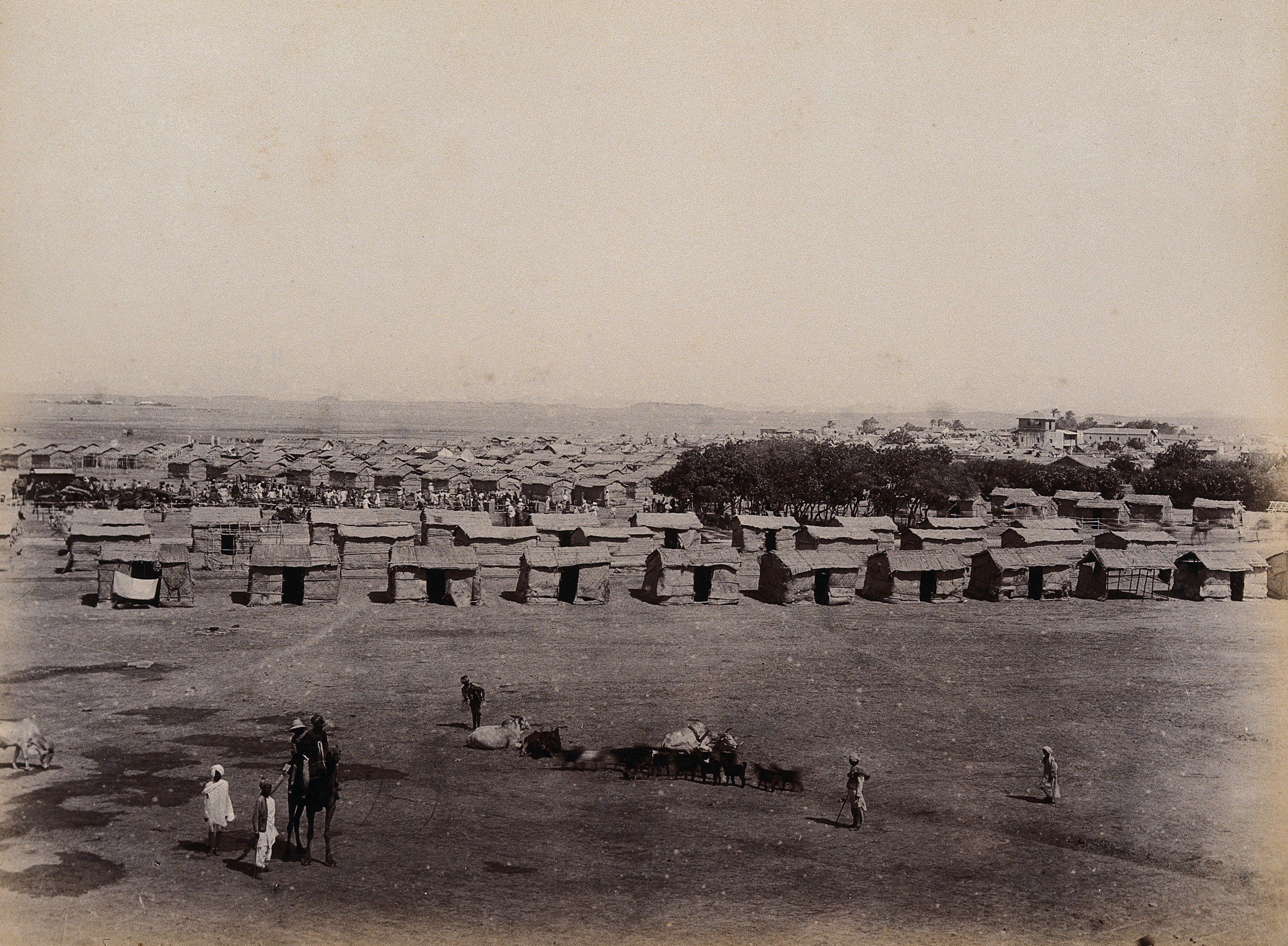 ] .pull-right[  ] ??? 1. We've studied political emergencies and emergency powers this year 2. Aidan Forth - origins of British concentration camps in public health emergencies/responses in India 3. Public health and public safety, national security, are effectively indivisible on a legal/technical standpoint 4. Watch the response to COVID 19 - how does political culture, legal/social norms, state capacity, effect state responses? 5. Interesting question to consider: does the British state have enough bodies to throw at a quarantine on a Wuhan level? 6. Also, look for how states (Israel) are now responding to health surveillance using digital technologies - emergency powers become stable tools of states --- class: inverse # Part 5: Conclusions and Connections ??? 1. Over these five weeks talked about digital repression 2. I think this is a good frame for considering how and why many of the kinds of conflicts we've studied this year will differ in future 3. Key issue: we can't separate good use of technology from the bad 4. Key issue raised in this lecture is that the answer might be that nothing can be done about Xinjiang, in part because of the structure of the world that the west has created 5. Also, as we look to transfer of tech/techniques of population control in China, we can see that this kind of state capacity can be re-purposed for good aims. So what to make of it? --- # Key Issues I am pessimistic about the ability of international actors to pressure China into closing its interment camps in Xinjiang - Do you agree with both my assessment and my reasoning? Population control on this scale is costly in terms of state resources, but digital technologies are mitigating some of the key costs (personnel) We have mostly studied "bad" forms of population control this year, albeit with an eye to explaining its underlying logic, but we should consider that this level of state capacity is important in the context of public health emergencies ??? 1. /// 2. /// 3. /// 4. /// 5. /// --- # Key Questions Consider what we have learned this year in the context of the current Covid-19 pandemic - how are people assessing the relationship between state characteristics (politics, capacity) and their responses to the pandemic? How does your opinion of digital forms of population monitoring, surveillance, and control, differ between the context of national security (e.g. counter-terrorism) and public health emergencies (mindful that these can also be classed as national security threats)? ??? 1. /// 2. /// 3. /// 4. /// 5. /// --- class: inverse # Part 6: Course Round Up ??? 1. Thanks, it was a great year 2. One of the joys of teaching is getting to know people, and it was a great group to teach 3. One thing, please reflect on how your ideas have changed over the course 4. I think one thing that developed in my mind as this year went on was the focus upon population control as it relates to strategy and war